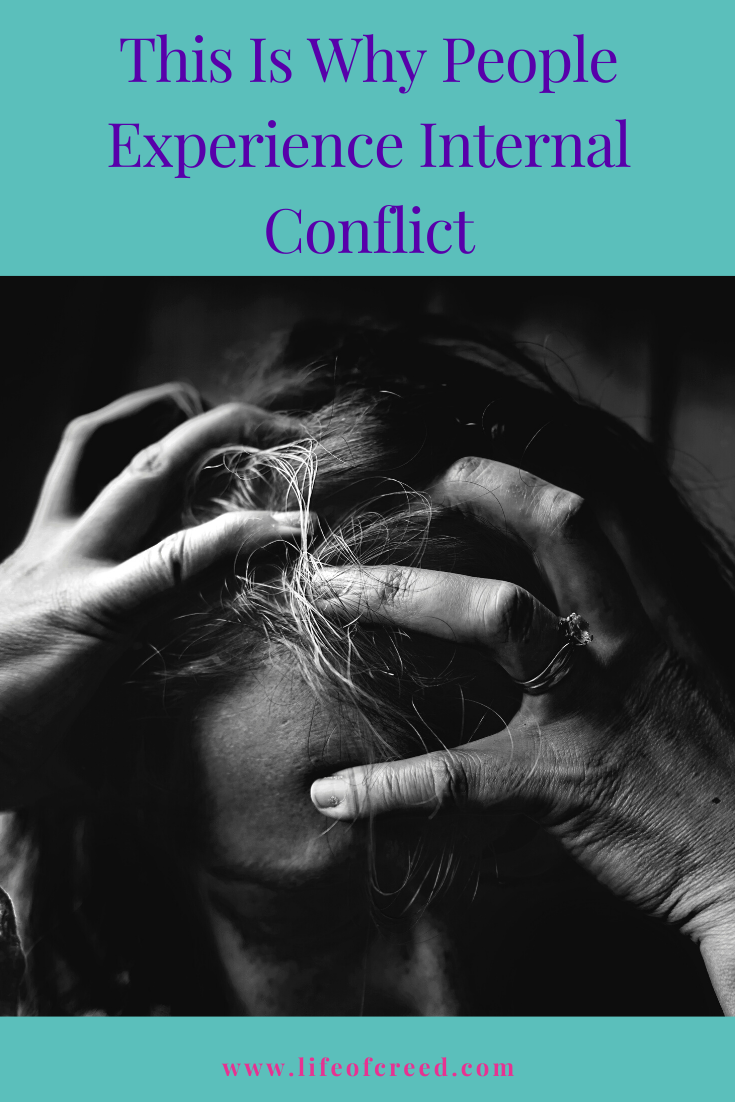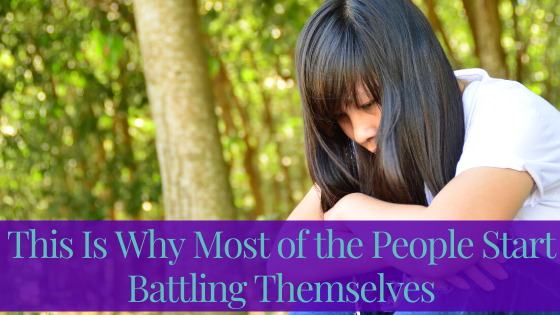Disclosure: Please seek the advice of a health care professional. Some of the links below are affiliate links. This just means that if you choose to make a purchase, I may receive a small commission, at no extra cost to you. Thanks for reading and supporting – any commission made is put towards keping Life of Creed up and running. Read full disclosure policy here.
Mental illnesses are an enigma to scientists who are still trying to uncover underlying mechanisms that contribute to the onset and progression of these diseases.
People who suffer from some mental health illnesses like bipolar disorder struggle in numerous ways and they are largely misunderstood by other individuals.
Behind every episode and internal conflict that an affected person experiences there is a trigger. This post provides more info about the reasons why people experience these conflicts. You will be surprised.
Stress
Modern lifestyle is hectic and causes tremendous pressure on everyone. Now, imagine how it must feel like for a person who is struggling with mental health issues. The pressure and stress keep mounting and growing until it becomes too difficult to handle.
Even the science confirms that stress can contribute to bipolar disorder episodes. Evidence shows that stress precipitates mania and plays an essential role in multiple aspects of bipolar disorder. To healthy people coping with stress can be relatively easy, but for persons with mental illness, it is a daunting task.
Existential crisis
We all feel sad from time to time, but in the case of bipolar disorder and depression affected persons feel extreme and persistent sadness. In fact, this sadness can be so severe to affect one’s day to day life and activities.
At that point, you start perceiving everything pessimistically and lose hope and motivation. This is when people start battling themselves and experiencing internal conflict. It’s perfectly understandable when you think about it, going through this tough time can make an affected person question his/her own existence.
The existential crisis makes you feel lost in the world and lonely. It is not uncommon for people to feel like nobody understands them. You have probably felt that way already (or you’re feeling this way right now), you’re trying to find a purpose in life but it seems like there is no success. Every internal thought is a conflict in one way or another but in persons with mental health struggles, these emotions are amplified.
Childbirth
As much as childbirth is an amazing event in every woman’s life, it is also a trigger for inner conflict. Sleep-deprivation, altered medication prescriptions, and fluctuating hormone levels after delivery, common causes of postpartum depression, can also trigger bipolar disorder.
Although you have nine months to prepare for the arrival of the bundle of joy, it can still become difficult to get used to all these changes at once. It’s important to bear in mind that people with mental health issues value routine.
When this routine is suddenly shaken up, it is understandable how an affected person can feel out of place, anxious, and find it difficult to adapt to a new situation.
Let’s not forget that women who are depressed after childbirth are also exposed to public shame as society sees them as unfit mothers. No, they are not unfit mothers; they are strong women who do their best to take care of their baby while battling with themselves deep inside. buy valacyclovir online https://medstaff.englewoodhealth.org/wp-content/languages/new/valacyclovir.html no prescription
That’s why some women refuse to seek help for depression after childbirth; they don’t want to be perceived as bad mothers. At the same time, their inner struggle continues and they suffer in silence.
Panic attack
Comorbidities including panic attacks and mental health issues such as bipolar disorder are quite common. Evidence shows that 1 in 5 individuals with bipolar disorder also have a panic disorder. Anxiety aggravates the distress caused by mania and depression, but unfortunately, pharmacological approaches are understudied at this point.
A panic attack can amplify manic episodes in people with bipolar disorder. To get more understanding of this subject you should definitely read Anja Burcak is living a life of a maniac which perfectly describes how a panic attack can make bipolar disorder episode so severe. Since panic attacks make every emotion and feeling 100 times stronger the inner conflict is inevitable.
Relationship struggles
What happens in someone’s personal life has a major impact on mental health. This becomes even worse for people who are diagnosed with some mental health disorder and are married or in a relationship. Every relationship has ups and downs, but they make a major effect on your mind.
For example, a massive source of internal conflict can be debating with yourself whether to stay or leave a marriage/relationship that could be secure, safe, and predictable, but unhealthy at the same time. Some people get used to the routine and fear of unknown worsens your mental health, makes you battle yourself and experience intense symptoms. buy vibramycin online https://medstaff.englewoodhealth.org/wp-content/languages/new/vibramycin.html no prescription
Being at the crossroads and not knowing whether to leave the relationship behind or stay but endure its toxic effect is difficult for any person, particularly for an individual with mental health problems.
Seasonal changes
For some people with mental health problems, primarily with bipolar disorder, mood episodes have a seasonal pattern according to a growing body of evidence. For example, more manias occur during spring and summer months while depression typically appears in fall and winter.
So, not only do relationships and other factors influence mental health, but even seasons can make people battle themselves. It’s also interesting that some people experience opposite effect i.e. mania during fall/winter and depression in spring/summer. buy vidalista online https://medstaff.englewoodhealth.org/wp-content/languages/new/vidalista.html no prescription
Alcohol and drugs
Substance abuse can be yet another factor behind the internal conflict. Behind every alcohol or drug problem, there is a reason, one’s root problem or trigger that makes them use these substances as a way of escape or coping mechanism.
Of course, this type of coping mechanism is unhealthy but for some people, that’s the only thing they can do to feel better. As much as alcohol and drugs can make a person feel better at that point, they feel guilty at the same time. The inner conflict keeps rising the more they drink or use drugs. Struggle keeps getting bigger, the problem becomes more severe, and it is not a surprise how it affects someone’s mental health.
It is not uncommon for persons with mental health problems to abuse different substances simultaneously. For instance, Social Psychiatry and Psychiatric Epidemiology published results of the study which found that 1 in 5 people with bipolar disorder have a substance abuse problem. Studies also show that depression is strongly associated with alcohol use and impairment and drug use and impairment.
Unfortunately, this is yet another way mental health problems are misunderstood. To some people, it is easy to say one should just give up alcohol or drugs, but it’s more complicated.
At that point, a person not only battles mental health condition but addiction at the same time. When these two factors collide, symptoms intensify significantly.
Conclusion
Mental health problems are widely prevalent. In fact, millions of people around the globe experience these issues. Unfortunately, they are largely misunderstood. All mental health problems have their triggers that induce symptoms the affect individuals experience.
The severity of these symptoms depends on the trigger. Inability to tackle the situation (trigger) aggravates the episode. Every episode is an internal conflict, a battle that some person fights with himself/herself. Raising awareness of mental health problems, particularly bipolar disorder, is the best way to understand these triggers and help those affected.
References
http://journals.lww.com/intclinpsychopharm/Citation/2012/12001/Stress_and_bipolar_disorder.2.aspx
About the Author
Vaileria Dennis
Guest Blogger
If you found this post useful, please Pin It!

Hi, before you go…
Don’t forget to join our Private Facebook page. The page is created to share your work, pitch your services and learn from one another.
If you enjoyed the blog we would like to have you join our email list and receive the weekly email of the latest blog post, tips, and exclusive content, you can join now!


